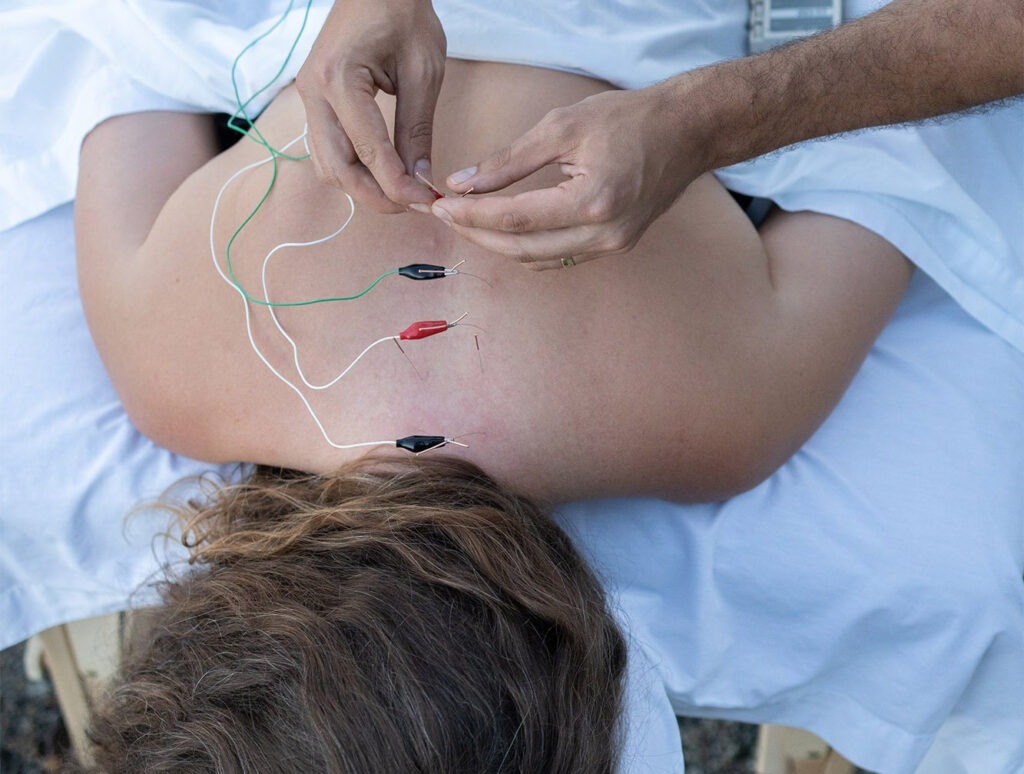Electroacupuncture Improved Motor Dysfunction and Constipation
 Parkinson’s disease (PD), a progressive neurodegenerative disorder, is characterized by motor dysfunctions such as tremors, rigidity, bradykinesia, and postural instability, as well as non-motor symptoms like constipation. While dopaminergic medications have been the cornerstone of PD treatment, their effectiveness tends to diminish over time, and they are often accompanied by undesirable side effects. Consequently, alternative treatments such as electroacupuncture have garnered increasing attention for their potential to alleviate symptoms, particularly in patients with motor dysfunction and constipation. A recent randomized controlled multi-centre trial provides compelling evidence on the efficacy of electroacupuncture in managing these common PD symptoms.
Parkinson’s disease (PD), a progressive neurodegenerative disorder, is characterized by motor dysfunctions such as tremors, rigidity, bradykinesia, and postural instability, as well as non-motor symptoms like constipation. While dopaminergic medications have been the cornerstone of PD treatment, their effectiveness tends to diminish over time, and they are often accompanied by undesirable side effects. Consequently, alternative treatments such as electroacupuncture have garnered increasing attention for their potential to alleviate symptoms, particularly in patients with motor dysfunction and constipation. A recent randomized controlled multi-centre trial provides compelling evidence on the efficacy of electroacupuncture in managing these common PD symptoms.
Study Overview
The study aimed to assess the impact of electroacupuncture on motor dysfunction and constipation in PD patients. Conducted across multiple centres, the trial randomized patients into two groups: one group received electroacupuncture treatment, while the other was given a placebo treatment. Over a period of 12 weeks, the study evaluated changes in motor function, as well as the frequency and severity of constipation symptoms.
Methods
The study involved a total of 150 participants diagnosed with PD, all of whom exhibited significant motor dysfunction and constipation. Electroacupuncture was administered by skilled practitioners, targeting specific acupoints traditionally used to enhance motor function and relieve gastrointestinal issues. The intervention consisted of 20-minute sessions, three times per week, for 12 weeks.
The primary outcomes of the trial were improvements in motor function, measured using the Unified Parkinson’s Disease Rating Scale (UPDRS), and improvements in constipation, assessed using the Cleveland Clinic Constipation Score (CCCS). Secondary outcomes included changes in quality of life and adverse events.
Results: Electroacupuncture Led to Significant Improvements in Motor Function
The results of the study demonstrated that electroacupuncture led to significant improvements in both motor function and constipation when compared to the placebo group. Specifically, patients receiving electroacupuncture showed a notable reduction in UPDRS scores, reflecting improvements in motor performance. Furthermore, these patients reported significant relief from constipation symptoms, evidenced by decreased CCCS scores.
Notably, the benefits of electroacupuncture were sustained over the 12-week treatment period, and the treatment was generally well-tolerated with minimal adverse effects. The placebo group, on the other hand, showed no significant improvements in either motor function or constipation.
Discussion
The results from this multi-centre trial add to a growing body of evidence suggesting that electroacupuncture may be an effective complementary therapy for managing both motor and non-motor symptoms of Parkinson’s disease. The mechanisms underlying these improvements are not entirely understood, but it is hypothesized that electroacupuncture may help modulate the autonomic nervous system and restore the balance of neurotransmitters involved in motor control and gastrointestinal function.
The study also underscores the potential of electroacupuncture as a safe and non-invasive treatment option for PD patients who may not respond adequately to pharmacological treatments or those who experience undesirable side effects from conventional therapies.
This randomized controlled trial provides stronger evidence supporting the use of electroacupuncture for the treatment of motor dysfunction and constipation in patients with Parkinson’s disease.
The significant improvements observed in both motor symptoms and gastrointestinal function suggest that electroacupuncture can be a valuable adjunct to conventional treatments for PD, particularly in patients seeking alternative therapies. Given its safety profile and minimal adverse effects, electroacupuncture should be further explored in larger-scale trials to better understand its long-term efficacy and potential for widespread clinical use.
For a more detailed review of the study, refer to the full article available here.
Contact Urban Acupuncture Center in Columbus, OH For More Information
For more information about how acupuncture, massage therapy, electroacupuncture and other alternative healing treatments can help you, please contact the Urban Acupuncture Center Board Certified Licensed Acupuncturist’s team at Indianola Ave, Columbus, Ohio (Clintonville) (614) 725-2488 or click here. Taking new patients in and around greater Columbus, Ohio.
